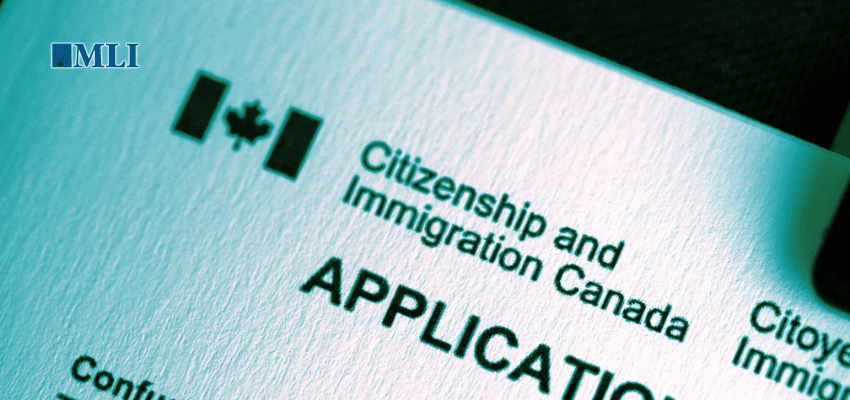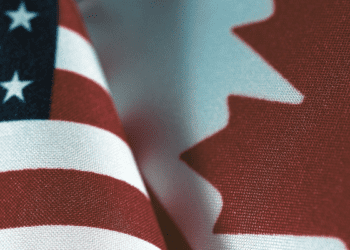By David L. Thomas, April 4, 2025
A recently de-classified 2022 report of the National Security and Intelligence Review Agency (NSIRA) suggests we’ve entirely misplaced our priorities when it comes to protecting Canadians from foreigners with dangerous backgrounds. Apparently referring prospective immigrants from places in the world beset with violent extremism for deeper background checks could constitute discrimination against those individuals that is “not justifiable on security grounds.”
Arbitrary discrimination on a prohibited ground is wrong. However, it is obviously important, for example, for the government to conduct proper security checks when we admit people into Canada as immigrants. There are times when certain discrimination might be warranted.
Essentially, for fear of being accused of discrimination, our national security oversight committee has deemed that checking prospective immigrants for ties to terrorist organizations is not a matter of national security. This is plainly absurd and is a grave risk to our national security.
The decision-style report of the NSIRA tribunal related to a group of complaints before the Canadian Human Rights Tribunal (CHRT) under the Canadian Human Rights Act (CHRA). The large group of complainants were citizens of Iran seeking temporary or permanent visas to Canada and who were subjected to security background checks. They alleged discrimination on the basis of race and that the CSIS checks delayed the processing of their visa applications (reported by NSIRA as an average delay of 14 days for temporary visas and 26 days for immigration visas). Iran is a country with which we have no diplomatic relations and we have designated as a state sponsor of terrorism since 2012.
Without the resources of CSIS and a deeper security check, how could an immigration officer in the field determine if a visa applicant may have once been a member of a terrorist organization, like al-Qaeda, or a drug cartel? CSIS security checks are designed to look deeper into an individual’s background, sometimes with the co-operation of foreign spy agencies.
These complaints came across my desk in the final months of my term as the Chairperson of the CHRT. Having previously practiced immigration law for more than 20 years, I was well aware of CSIS security background checks. My expectation was that the NSIRA would recommend dismissal of the complaints because, well of course, checking whether a prospective immigrant is connected to a terrorist organization has to be related to the security of Canada, no?
Apparently not.
The CHRT complaints were suspended under a never-before-used section of the CHRA. Under Section 45, the Minister of Immigration, Refugees and Citizenship Canada gave notice “that the (alleged discriminatory) practice to which the complaint relates was based on considerations relating to the security of Canada.” Despite this notice, the Human Rights Commission declined to dismiss the complaints and instead referred the matter to the NSIRA to provide a report on the matter.
The NSIRA report was the first of its kind and acknowledged there is little legislative guidance on the nature of its role under a Section 45 referral. However, in my view, the NSIRA has usurped the role of the CHRT by determining that the criteria applied for requesting the CSIS background checks “was not justifiable on security grounds.” In my view, their determination should have been limited to only whether the alleged discriminatory practices related to national security.
Nevertheless, the complaints are now proceeding before the CHRT to determine if it was discriminatory to make referrals for security background checks.
Arbitrary discrimination is, in most cases, against the law. However, there are exceptions, and one of them is Section 45 of the CHRA which creates a “carve out” from the normal rules when a matter of national security is on the line. And yet, the NSIRA decision bizarrely set aside national security and failed to grant the exception.
Canada has drastically increased its intake of migrants in recent years. Since 2021, the annual target for permanent residents was almost doubled to 500,000. Non-immigrant foreigners, mostly students and temporary workers, accounted for 2.5 million people, or 6.2% or the population in 2023. As these are people entering Canada legally, Canadians are rightly under the impression that migrants have been properly vetted before coming into our country. But it’s clear we’re not living up to expectations.
Canada recently admitted Muhammad Shahzeb Khan from Pakistan, accused of plotting a massive attack against Jews in New York last October. When this news broke Canada was still reeling from the embarrassment of having just granted Canadian citizenship to Ahmed Fouad Mostafa Eldidi. Along with his son, Mostafa Eldidi, he was arrested in July last year as the pair was accused of being in the advanced stages of planning a violent attack on behalf of ISIS in Toronto. Apparently, Ahmed appears in a 2015 video dismembering an ISIS prisoner with a sword.
All prospective immigrants to Canada are subject to checks for past criminal activity. However, sometimes an immigration officer might flag an applicant for a security screening by the Canadian Security Intelligence Service (CSIS) to determine if a visa applicant has ties to terrorist groups, espionage, war crimes, crimes against humanity, etc.
In order to protect Canada, immigration officers in the field should have the unfettered discretion to refer any non-Canadian for a CSIS security background check. The referral is not a denial of entry into Canada. Applicants are just being asked to wait a little longer until we’re satisfied about their background. Immigration officers should not be second-guessing themselves about this discretion for fear of a human rights complaint.
Now is the time for Canada to set its priorities right. Our national security must be paramount and should not be hamstrung by unrealistic idealism.
David Thomas, a senior fellow at the Macdonald-Laurier Institute, is a lawyer and mediator in British Columbia. From 2014 to 2021, he was the chairperson of the Canadian Human Rights Tribunal.






